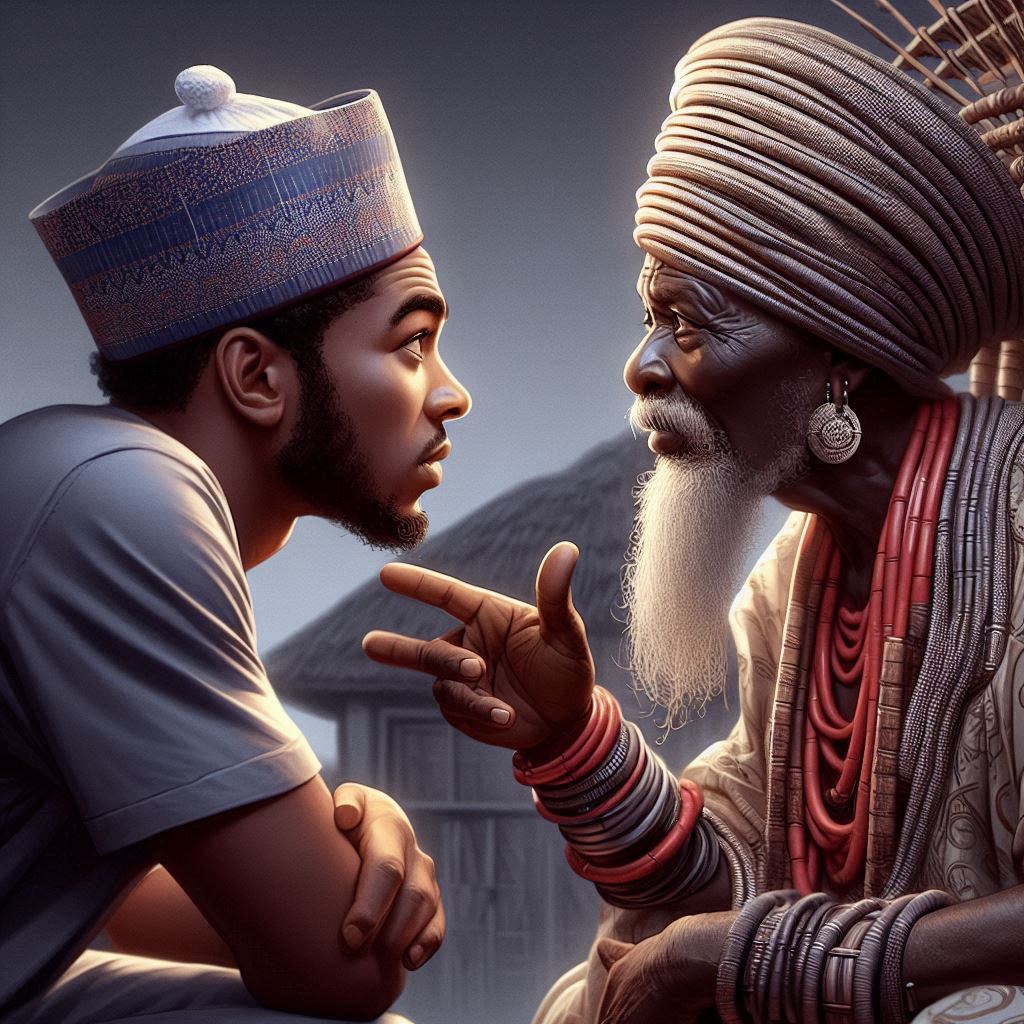Introduction
Nigerian languages face significant challenges today. Many indigenous languages are endangered due to globalization and urbanization.
English dominates official and educational settings, overshadowing local tongues. Despite this, Nigeria’s linguistic diversity remains rich and vibrant.
Preserving and promoting these languages is crucial for cultural heritage. They embody the identity, history, and traditions of various ethnic groups.
Efforts to maintain these languages safeguard this cultural wealth for future generations. The future of Nigerian languages shows promising trends and predictions.
Technology is playing a pivotal role in revitalizing these languages. Digital platforms and social media foster language learning and use among younger generations.
Schools are increasingly integrating indigenous languages into their curricula. This move ensures that children grow up bilingual, appreciating both local and global languages.
Community-driven initiatives also support language preservation through storytelling and cultural festivals. Predictions for the future include a rise in bilingual education models.
These models will promote proficiency in both indigenous languages and English.
Another trend is the growing use of technology to document and teach these languages. Virtual classrooms and mobile apps will make language learning more accessible.
The future of Nigerian languages depends on a collective effort to embrace and innovate. With continued dedication, these languages can thrive and evolve in the digital age.
Importance of Cultural Preservation
The role of language in preserving Nigerian culture
Language serves as a vessel of cultural heritage, transmitting values, traditions, and history from generation to generation.
It is through language that stories, folklore, and oral traditions are passed down, keeping the essence of Nigerian culture alive.
Furthermore, language is intricately linked to customs, rituals, and social practices, playing a vital role in shaping the cultural identity of the Nigerian people.
The impact of globalization on Indigenous languages
Globalization has brought about significant changes in the linguistic landscape of Nigeria, posing a threat to indigenous languages.
As English becomes more dominant in various spheres of life, indigenous languages are gradually losing ground, risking extinction in the process.
The influx of foreign media, technology, and educational systems further marginalize local languages, leading to a decline in native speakers over time.
The significance of language diversity for national identity
Language diversity is a reflection of the rich tapestry of cultures, traditions, and beliefs that make up the Nigerian society.
Each language represents a unique worldview and perspective, contributing to the mosaic of identities that form the nation’s collective heritage.
Preserving language diversity is crucial for fostering unity, understanding, and mutual respect among Nigeria’s diverse ethnic groups, strengthening the country’s national identity.
Decline of Indigenous Languages
As Nigeria continues to evolve, the decline of indigenous languages has become a significant concern. Several factors contribute to this decline:
- Rapid urbanization leading to migration to urban centers
- Influence of globalization and the dominance of English
- Lack of institutional support for indigenous languages
- Intermarriage between different ethnic groups leading to language shift
Effects of Urbanization and Modernization on Language Usage
Urbanization and modernization play a crucial role in the decline of Nigerian languages.
As people move to urban areas in search of better opportunities, they are exposed to a more cosmopolitan environment where English is the dominant language used in schools, workplaces, and media.
This shift towards using English as the primary language for communication has led to a gradual erosion of indigenous languages.
Parents often opt to speak English to their children in the hope of improving their chances in a competitive society. This further diminishes the intergenerational transmission of native languages.
Challenges Faced by Minority Languages in Nigeria
Minority languages in Nigeria face numerous challenges that threaten their survival. These challenges include:
- Lack of resources for language preservation and documentation
- Stigmatization and discrimination against minority language speakers
- Low prestige of minority languages compared to dominant languages
- Education policies that promote the use of a limited number of languages
Without intervention and support, many minority languages in Nigeria are at risk of disappearing completely. Efforts must be made to revitalize and preserve these languages to maintain linguistic diversity and cultural heritage.
Digital Revival
In the modern age of technology, there is a great potential for the revival and preservation of Nigerian languages through digital means.
The widespread use of smartphones, social media platforms, and various digital tools has opened up new avenues for language preservation and revitalization.
Analyzing the potential of technology in revitalizing Nigerian languages
With the advent of advanced technology, there are numerous opportunities to digitize and promote Nigerian languages.
Language apps, online courses, and e-books can help make these languages more accessible and attractive to the younger generation.
By leveraging technology, Nigerian languages can reach a wider audience and become integrated into everyday digital interactions.
Exploring the use of social media and mobile apps for language preservation
Social media platforms like Facebook, Twitter, and Instagram provide a space for language enthusiasts to connect and share resources in Nigerian languages.
Mobile apps such as language learning tools and dictionaries can aid in the preservation and promotion of these languages.
These digital platforms also enable real-time communication in Nigerian languages, fostering a sense of community among speakers.
The impact of digital tools on language learning and documentation
Digital tools have revolutionized the way languages are learned and documented. Online platforms offer interactive language lessons, audio recordings, and translation services that facilitate language learning.
Additionally, digital archives and databases store valuable linguistic data, ensuring the preservation of Nigerian languages for future generations.
These tools enhance the efficiency and accuracy of language documentation, contributing to the overall revitalization efforts.
Basically, the digital landscape presents a multitude of opportunities for the revitalization and preservation of Nigerian languages.
By harnessing the power of technology, language enthusiasts can create a sustainable ecosystem for the promotion of these languages in the digital age.
Read: History of Sociology in Nigeria: A Comprehensive Overview
Evaluation of Education and Language Policy
Education plays a crucial role in the promotion and preservation of Nigerian languages. It is through education that individuals learn to appreciate their cultural heritage and language diversity.
By integrating Nigerian languages into the education system, students can develop a sense of pride and identity in their linguistic roots.
Government Policies and Initiatives
- The Nigerian government has recognized the importance of preserving indigenous languages and has implemented various policies to support language preservation.
- Initiatives such as the National Policy on Education emphasize the need to incorporate Nigerian languages into the curriculum at all levels of education.
- Government-funded programs like the Centre for Black and African Arts and Civilization (CBAAC) aim to promote Nigerian languages through research, publications, and cultural events.
- The National Institute for Nigerian Languages (NINLAN) was established to train teachers in indigenous languages and develop educational materials to support language learning.
Strategies for Integration
- One key strategy for integrating indigenous languages into the education system is to develop bilingual education programs that cater to both Nigerian languages and English.
- Training teachers in indigenous languages and providing resources for language instruction can help in promoting the use of local languages in schools.
- Encouraging the use of Nigerian languages in everyday communication and creating opportunities for language immersion can foster a deeper connection to indigenous languages.
- Collaborating with communities and cultural organizations to develop language preservation programs can ensure the sustainability of Nigerian languages for future generations.
To sum it up, education and language policy play a vital role in preserving and promoting Nigerian languages.
By implementing government policies and initiatives that support language preservation and integrating indigenous languages into the education system, Nigeria can ensure the continued vitality of its linguistic diversity.
Read: Prominent Nigerian Sociologists and Their Contributions
Linguistic Diversity and Unity
When we delve into the linguistic landscape of Nigeria, we are met with a kaleidoscope of languages, each with its unique characteristics and cultural significance.
With over 500 languages spoken in the country, Nigeria boasts of one of the highest levels of linguistic diversity in the world. This linguistic diversity is a testament to the rich cultural tapestry that exists within the nation.
Highlight the rich linguistic diversity in Nigeria
- Nigeria is home to over 500 languages, representing different ethnic groups.
- Some of the major languages include Hausa, Yoruba, Igbo, Fulfulde, and Ibibio.
- Each language embodies a unique worldview and cultural heritage.
- These languages have been passed down through generations, preserving the traditions and history of various ethnic groups.
Despite this linguistic abundance, there is a need to recognize and celebrate the linguistic diversity that exists in Nigeria.
These languages are not just a means of communication but also a repository of knowledge, traditions, and identity that must be preserved and promoted.
The importance of linguistic unity for national development
- Linguistic unity plays a crucial role in fostering national cohesion and integration.
- It serves as a unifying factor that transcends ethnic and cultural boundaries.
- Promotes inclusivity and enhances communication and understanding among different ethnic groups.
- Language is a powerful tool for nation-building and fostering a sense of belonging among citizens.
For a country as diverse as Nigeria, linguistic unity is essential for sustainable development and progress.
It allows for effective communication, collaboration, and cooperation among individuals from different linguistic backgrounds, paving the way for harmonious coexistence and mutual respect.
Explore ways to promote multilingualism and language tolerance in Nigeria
- Implement language policies that recognize and promote the use of indigenous languages.
- Integrate multilingual education programs in schools to foster language diversity.
- Encourage the celebration of linguistic diversity through cultural events and festivals.
- Promote language tolerance and respect for all languages spoken in Nigeria.
By embracing multilingualism and promoting language tolerance, Nigeria can harness the full potential of its linguistic diversity.
This inclusive approach not only preserves the cultural heritage of various ethnic groups but also contributes to national unity and development.
To summarize, the future of Nigerian languages lies in recognizing the value of linguistic diversity and promoting linguistic unity.
By embracing multilingualism and fostering language tolerance, Nigeria can build a more inclusive society where every language is celebrated and respected.
Language is not just a means of communication but a reflection of a nation’s identity and heritage, and it is imperative that we safeguard and promote this linguistic heritage for future generations.
Read: Sociology Departments in Nigerian Universities

Find Out More: History of Mass Communication Education in Nigeria
See Related Content: Notable Historical Journals and Publications in Nigeria
Delve into the Subject: Exploring Nigerian Literature in Foreign Languages
Discover More: Nigerian Fashion Shows and Events to Attend
Explore Further: Preparing for a Career in Media with English Studies
Globalization and Language Evolution
Examine the influence of globalization on Nigerian languages
Globalization has had a profound impact on Nigerian languages, reshaping their structures and usage.
As Nigeria becomes more interconnected with the global community, traditional languages are facing challenges.
One significant influence of globalization on Nigerian languages is the increased use of English as a dominant language.
English has become a language of prestige and privilege, leading to a decline in the use of indigenous languages.
Furthermore, globalization has facilitated the spread of technology and media, which often use English as the primary language.
Transform Your Career with Expert Guidance
Get personalized mentorship consulting that’s tailored to your unique path. Our expert advice is actionable and exclusive.
Get StartedThis exposure has led to a shift in language preferences among the younger generation, who see English as more beneficial for their future.
The emergence of new language varieties and hybrid languages.
As a result, many Nigerian languages are at risk of becoming endangered or extinct in the face of globalization.
However, globalization has also sparked the emergence of new language varieties and hybrid languages in Nigeria.
These new forms of language blend elements of indigenous languages with English or other foreign languages, creating unique and dynamic linguistic expressions.
For example, Nigerian Pidgin English has evolved as a hybrid language that combines English with local Nigerian languages, reflecting the diverse cultural influences in the country.
Predict the future trends in language evolution and adaptation.
This trend towards language hybridity is likely to continue in the future, as Nigerian languages adapt to the changing sociocultural landscape.
Moreover, the future of Nigerian languages will likely see a shift towards increased multilingualism and code-switching as people navigate between different linguistic contexts.
In response to the challenges posed by globalization, efforts are being made to preserve and promote indigenous languages in Nigeria.
Language revitalization programs aim to educate younger generations about the importance of preserving their linguistic heritage and cultural identity.
Government policies have also been implemented to support the use of indigenous languages in education and official settings.
Community initiatives, such as language immersion programs and local language media, are helping to keep Nigerian languages alive and relevant in a globalized world.
In Essence, the future of Nigerian languages is intricately tied to the forces of globalization, which present both challenges and opportunities for linguistic diversity.
While the dominance of English and other global languages poses a threat to indigenous languages, the emergence of hybrid languages and the efforts towards language preservation offer hope for the continued vitality of Nigerian linguistic traditions.
Read: Integration of Cultural Studies in Nigerian Curriculum
You Might Also Like: How to Write an Economics Research Paper in Nigeria
Gain More Insights: Fieldwork Opportunities in African and Asian Studies
Community Engagement and Empowerment
The Role of Community Initiatives in Language Preservation
Community initiatives play a critical role in preserving Nigerian languages.
These initiatives often stem from local passion and commitment. Local communities recognize the value of their linguistic heritage.
They take action to ensure its survival for future generations.
By organizing language classes, cultural festivals, and storytelling sessions, communities keep their languages alive.
These activities foster intergenerational language transmission, ensuring that younger members learn their mother tongues.
Community-driven efforts also create spaces where indigenous languages are celebrated and used daily.
The Impact of Grassroots Movements and Language Activism
Grassroots movements and language activism significantly impact the preservation of Nigerian languages.
Activists raise awareness about the importance of linguistic diversity.
They advocate for policies that protect and promote indigenous languages. Through social media and other platforms, activists reach broader audiences.
They engage people in discussions about language rights and cultural identity. These movements often start small but can grow to influence national policies.
Their persistent efforts can lead to the inclusion of indigenous languages in educational systems.
This inclusion ensures that languages are taught and spoken widely, not just within homes and communities.
The Importance of Community Involvement in Language Revitalization Efforts
Community involvement is essential for successful language revitalization. Without the active participation of the community, revitalization efforts may fail.
Communities provide the context in which languages are naturally used.
They offer real-life situations for language practice, which are crucial for fluency. Involving community members in language planning ensures that strategies are culturally relevant.
It also helps in creating materials and resources that resonate with the local context.
Community members can share their knowledge and experiences, enriching the revitalization process. Their engagement fosters a sense of ownership and pride in their linguistic heritage.
Case Studies of Successful Community-Driven Language Projects
Several successful community-driven language projects exist in Nigeria.
For example, the Yoruba Academy promotes the Yoruba language through various programs. It offers language classes, workshops, and cultural events.
The Igbo Youth Movement focuses on teaching the Igbo language to younger generations. They use digital tools and social media to reach a wider audience.
Another example is the Ede Oro Cultural Festival, which celebrates the Oro language and culture.
These projects highlight the power of community efforts in language preservation.
Challenges Faced by Community-Led Language Initiatives
Despite their successes, community-led language initiatives face several challenges.
Limited funding can hinder the scope and reach of their activities. There is often a lack of resources, such as textbooks and qualified teachers.
Additionally, urbanization and globalization pose threats to indigenous languages. Many young people migrate to cities, where dominant languages overshadow local ones.
Community initiatives must adapt to these challenges to remain effective.
You Might Also Like: Nigerian Languages in Media and Entertainment
Delve into the Subject: Future Trends in International Politics: Nigerian Insight
Learn More: Career Paths in Nigerian TV Production Industry
Find Out More: Benefits of Studying Communication in Nigeria
Conclusion
Recap of Key Trends and Predictions for Nigerian Languages
The future of Nigerian languages seems to be moving towards a decline in native speakers English continues to dominate as the primary language in schools and official communication.
Local dialects are at risk of extinction due to lack of interest from younger generations There is a growing concern about the preservation of Nigeria’s linguistic diversity.
Emphasis on the Need for Concerted Efforts
It is crucial for stakeholders to take proactive steps in preserving and promoting indigenous languages Communities need to promote the use of local languages in daily interactions and education.
School curriculums should include more opportunities for learning Nigerian languages.
Call to Action
Individuals need to embrace and use their native languages in their daily lives Communities should organize language preservation programs and cultural events.
The government should implement policies to support the preservation of Nigerian languages Together, we must work towards safeguarding Nigeria’s linguistic heritage for future generations.




